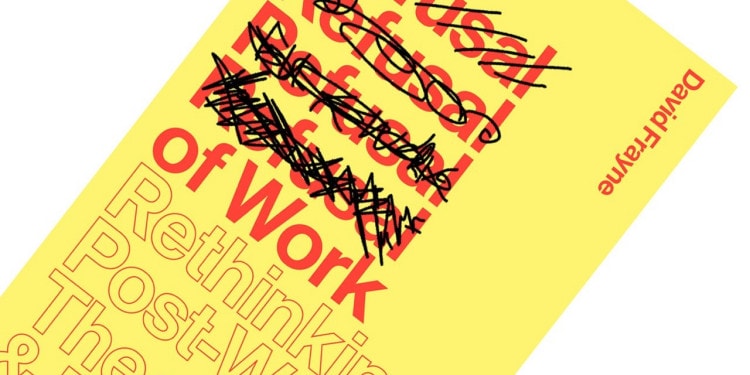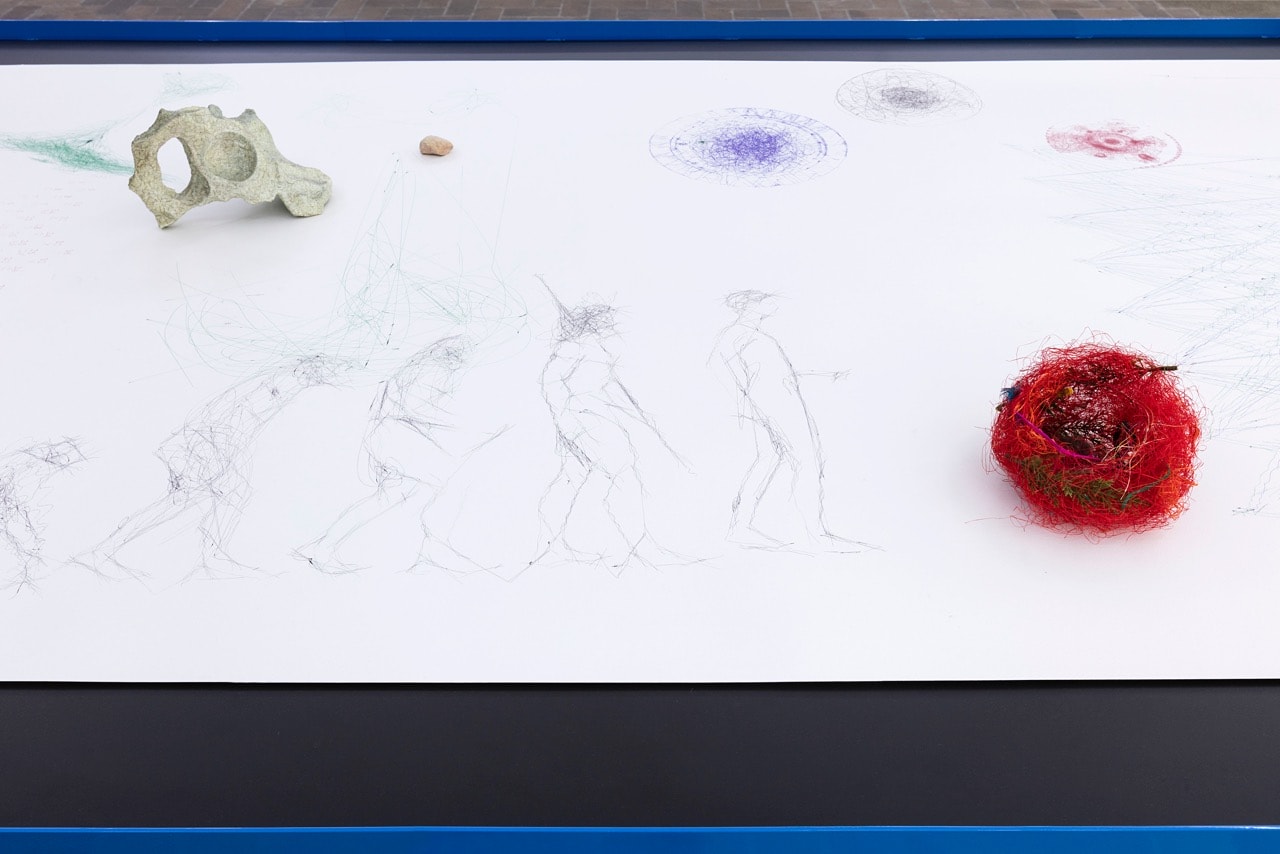“THE REFUSAL OF WORK: THE THEORY & PRACTICE OF RESISTANCE TO WORK” by David Frayne, 270 pages, Zed Books (2015)
Is work a joy or something we, like Dolly Parton in her hit single, must do each day from 9 to 5 to make a living? Is work even meant to be a joy? Could we find a way for work to be both? When was the last time you questioned your relationship with work or work’s place in our society? Its status is not only normalised, but championed.
If we do critique work we usually find that the onus is placed on us to find the appropriate work-life balance. We must change in order to meet the needs of the economy rather than the other way round. Perhaps this is a slightly cynical view but it still remains that despite technological advances, the working week is continuing to grow.
Those who do not work, no matter the reason, are routinely looked down upon despite the increasing pressures and shrinking resources available to non-workers due to the current climate of austerity. The British Conservative party now frames itself as the party for workers but what about those who don’t work?
David Frayne uses his most recent book, “The Refusal of Work,” to challenge the status of work in our society and explore the lives of people looking for alternatives – whether these are giving up work altogether, switching to part-time work or going freelance. Frayne encourages the reader to begin to think critically about work, explore its alternatives and get involved in the growing debate around how jobs should be structured and distributed in our society.
The book leads the reader to question if the growing disillusionment with work could blossom into a political alternative and create change on a societal level. In identifying a maldistribution of meaningful employment as the central problem with work today in the United Kingdom, Frayne radically calls for a re-distribution of the work we already have rather than creating new industries.
Related article: “A PROFILE OF A BURNOUT PHYSICIAN”
Intriguingly, the book is divided into two parts; the first is a theoretical exploration of the concept of work in the United Kingdom and the second tells the story of Frayne’s five year long research project into what pushes people to go against the grain and give up work in some way.
In the first section of the book, Frayne mixes contemporary theorists such as Carl Cederstrom, Peter Fleming, Arlie Hochschild and Andre Gorz with classical theorists such as Hannah Arendt and Karl Marx. The theory is situated in cultural references, including “The Lego Movie,” Charlie Chaplin, and zero-hour contracts, which, not only makes it accessible but also allows Frayne to apply classical concepts such as Marx’s alienation to our current situation. In mixing contemporary and classical theorists, Frayne alludes to the different ways in which capitalism and labor have evolved over time.
Frayne weaves together the two sections of the books by relating the theoretical concepts explored in the first half to the real life experiences of the people he encounters in the second half. This is a nice touch which ensures the book stays grounded in real life experiences.
In the photo: Suiting up for work Photo Credit: Public Domain Pictures/ Pixabay
“The Refusal of Work” focuses on the many ways jobs today exert more of an emotional toll from workers than ever before by exploring jobs in the service industry, jobs in call centers and the modern trend of attempting to make the office ‘fun’.
The author underlines how more and more companies in different sectors may allow workers to dress how they want, decorate their workstations to suit their tastes and call their workforce a ‘family’ that the freedom to be oneself is only allowed as long as the worker is prepared to stay within the limits. There is increasing pressures on workers to be upbeat, bubbly and fun and not a lot of room for the worker to express feelings of tiredness, stress or frustration. This can lead to emotional exhaustion and feeling burnt out.
When discussing the research participants who had cut down on paid labor or given it up altogether, Frayne stresses that these people did so not in order to do less but to make time to do more. Work had become so draining that these people found they had no time to pursue their passions and interests, something that is bound to ring a chord with many readers.
This brings up the question as to why has it become normal for our paid labor to be the most important thing in our lives? Why does economic activity outweigh all others?
For a full mindmap containing additional related articles and photos, visit #therefusalofwork
It is the case for most of us that we require our jobs in order to survive financially and thankfully, the book gives this due consideration by stressing the importance for most people to have an income and a discussion of the concept of Basic Income.
Basic Income is a popular theory amongst activists and academics in Europe and Northern America which suggests that each person should have the right to enough money to survive on, regardless if they work or not, and then this can be topped up by earning additional money through jobs if the individual wants to.
However, it is not made clear how governments could afford this. Frayne wants to know why societal structures place work on such a podium, rather than why we as individuals feel the need to go to work everyday. As part of this discussion, we see the author explore stereotypes that exist within British society such as the idea that unemployed people are lazy or have an easy life living off of benefits. Instead, Frayne shows that searching for a job weighs heavily on one’s mental health. Furthermore, he explores how the current climate of austerity is leading society to question groups who were traditionally exempt from working, such as single parents and those who are disabled or sick.
 In The Photo: Old Sign saying You’re Hired You’re Fired Photo Credit: Gerd Altman/ Pixabay
In The Photo: Old Sign saying You’re Hired You’re Fired Photo Credit: Gerd Altman/ Pixabay
Emotional health and self-care are a theme that runs throughout the book with Frayne showing the many ways we can be affected by both working and societal attitudes to not-working.
Additionally, throughout the book Frayne makes great efforts to be intersectional and in particular shows great sensitivity to the intersections of feminism, women’s rights and the topic of work. He explores feminism’s fight for women’s right to work and the double-shift of paid work and housework that is a reality for many women. In the second part of the book, Frayne continues situating his research participants within intersectional webs, by mentioning, where relevant, their gender or health.
Yet this could have been taken further as sexuality and race could be taken into consideration more in the second half of the book. That being said, Frayne maintains his focus on wellness and stresses how one of the hardest things about cutting down on work is coping with the reactions of others to this choice and exploring the coping strategies of his research participants.
All in all, Frayne offers a book which gives the reader a huge amount of food for thought. Throughout, Frayne offers a balanced argument, grounded in both theory and real-life experience which forces the reader to start to engage with both the critical debate around work and the neoliberal society structures. Despite containing many theoretical references, this is a book easy to read and understand; furthermore, despite the cynical twist on its topic matter, Frayne has written a book that is filled with optimism.
Whether you agree with Frayne or not; this book is sure to provoke a response. As summer draws to a close, this could be the perfect book for those returning to their jobs after summer vacation with heavy hearts.
Recommended reading: “AUTOMATION WILL MARK THE END OF OUR WORK-OBSESSED SOCIETY“












